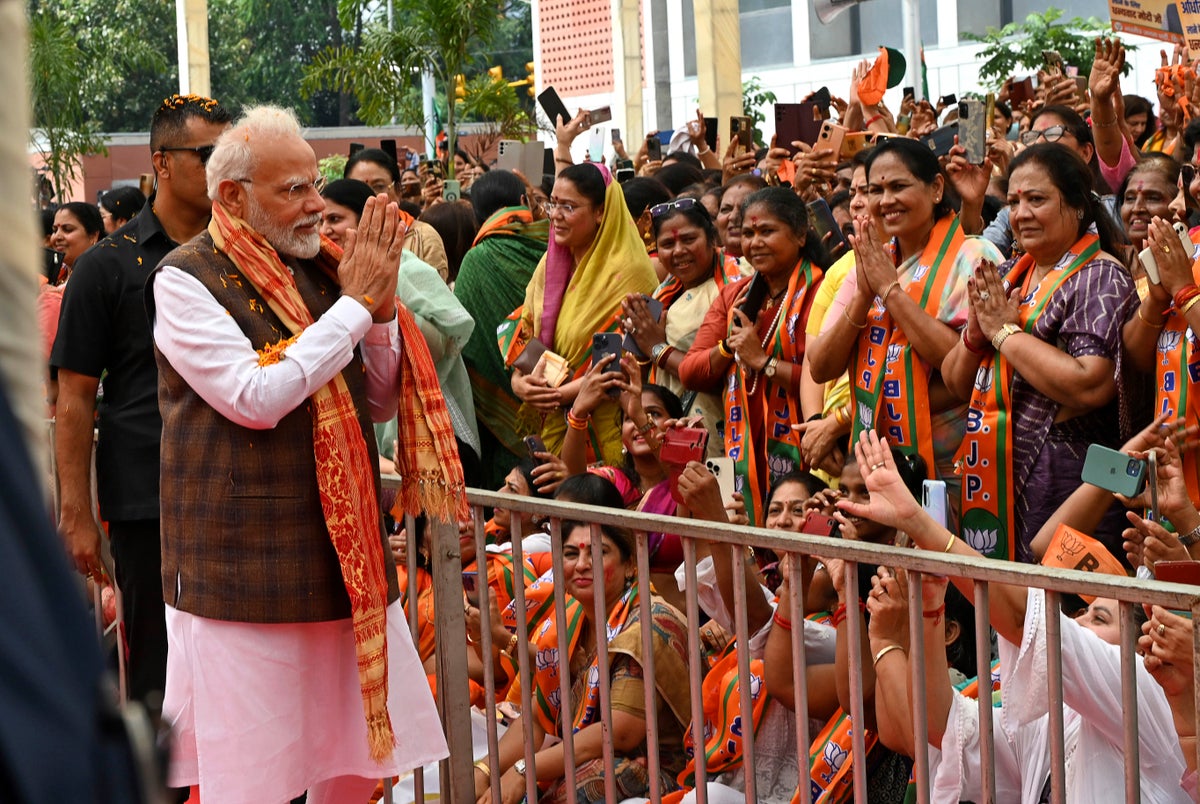
India’s Parliament has approved landmark legislation that reserves one-third of the seats in its powerful lower house and in state legislatures for women to ensure more equal representation, ending a 27-year impasse over the bill amid a lack of consensus among political parties.
But the wait is still not over, as the new law will not apply to next year’s national elections.
It will be implemented in the 2029 national elections following a new census and adjustment of voting districts after next year’s polls, Finance Minister Nirmala Sitharaman said during a debate in the upper house of India’s Parliament on Thursday night.
The lower house of Parliament approved the legislation on Wednesday with a 454-2 vote, and the upper house passed it unanimously, 214-0, late Thursday.
India’s once-a-decade census was to be held in 2021 but was delayed due to the COVID-19 pandemic.
All opposition parties supported the bill and said the delay in its implementation is an injustice to women. They demanded it apply to the next national elections, which are due to be held before May next year.
Rahul Gandhi, an opposition Congress party leader, said the new legislation could be implemented immediately and accused the Modi government of adopting a diversionary tactic. "This is not a complicated issue," he told reporters.
His mother, Sonia Gandhi, also a Congress party lawmaker, said Indian women have been waiting for this opportunity for years. "And now they are being asked to wait for some more years. How many years?” she asked on Wednesday during the debate in Parliament.
Under the legislation, the reservation of seats for women would continue for 15 years and could be extended by Parliament. Only women will be allowed to contest 33% of the seats in the elected lower house of Parliament and in state legislatures.
Prime Minister Narendra Modi said the government wants more women to join the country’s development process.
Modi was garlanded and offered flower bouquets by his party's women lawmakers and other workers as he arrived at the party headquarters on Friday to attend a function where he was feted for the new legislation.
“Our party was making efforts for the last three decades to ensure women’s participation in democracy through this law. This was our commitment, and today we have fulfilled it,” Modi said.
Dola Sen, a lawmaker with the opposition All India Trinamool Congress Party, asked whether the government was serious about implementing the quota of seats for women by delaying it until 2029.
In the 1990s, India introduced a similar seat reservation — also set at one-third — for women in elections for local organizations.
Home Minister Shah said four attempts by three governments since 1996 failed to enact the latest legislation in Parliament.
Women comprise over 48% of India’s more than 1.4 billion people but have 15.1% representation in Parliament, compared to the international average of 24%, Law and Justice Minister Arjun Ram Meghwal said. In India’s state legislatures, women hold about 10% of the seats.
Modi’s Bharatiya Janata Party and the opposition Congress party have been trying to enact legislation in Parliament to bring about gender parity and inclusive governance since 1996. They faced opposition from regional parties, which argued that seats reserved for women would be cornered by the educated elite from urban areas, leaving poor and less educated women unrepresented.
But opposition to the bill waned over the years, "giving way to broader symbolic politics where it is crucial to being perceived as responsive to emerging constituencies — like women,” wrote the Indian Express newspaper.
India is a patriarchal society in which the social status of work done by women is often considered inferior to that done by men. Men also often enjoy greater rights than women.







